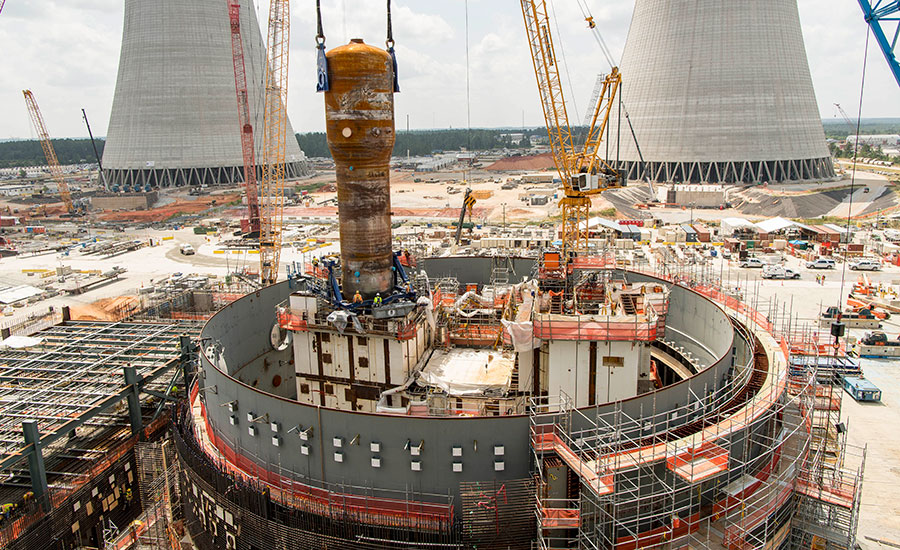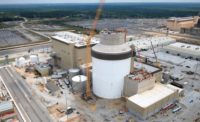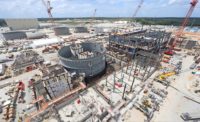After pushing to cap its financial responsibility for escalating construction costs at the Plant Vogtle nuclear expansion, project co-owner Oglethorpe Power Corp. was still considering Georgia Power’s demands to approve continued construction without new conditions late on Sept. 25.
Georgia Power’s push for a decision came a day after OPC issued a conditional approval requiring caps. That vote prompted Georgia Power’s demand that Oglethorpe vote to continue construction without new conditions or Georgia Power would cancel the project. On Sept. 26, Oglethorpe released a statement indicating that the co-owners were working "to finalize details of an agreement among the co-owners and seek necessary approvals" by the end of the day.
Georgia Power opposed Oglethorpe’s push for a cost cap, noting that “all four co-owners fully understood and voluntarily accepted their own risks … at the project’s inception.” Georgia Power, part of Southern Co., recently announced project cost increases of $2.3 billion, for a new total cost of about $27 billion.
On Sept. 19, Georgia legislators sent a letter to Georgia Power, Oglethorpe and the Municipal Electric Authority of Georgia (MEAG) urging a cost cap to protect ratepayers. (Dalton Utilities holds a 1.6% stake in the project.) The letter noted that because MEAG has no shareholders, its customers face potentially higher rate increases than Georgia Power’s customers.
On Sept. 21, the Dept. of Energy issued its own letter urging Oglethorpe and MEAG to continue construction. DOE said if the project was canceled, the agency would “move to fully enforce its rights” for timely repayment of roughly $5.6 billion in federal loan guarantees disbursed to date.
Oglethorpe said it pushed for conditional approval because, with roughly four years of construction remaining, it sought to “hold Southern Co. accountable for its newly revised budget and let their owners be responsible for any additional amounts beyond this level.”
Oglethorpe estimated its share of project costs has grown from an estimated $4.2 billion to roughly $7.25 billion.






Post a comment to this article
Report Abusive Comment